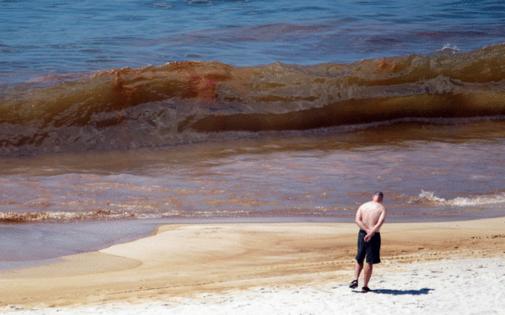Trump administration proposes pushing offshore oil drilling closer to Florida shores
Published in Science & Technology News
The Trump administration released new plans Thursday that could push offshore oil drilling closer to Florida shores in a move that many environmental critics argue will be detrimental to the state’s coastal economy and further threaten imperiled wildlife.
The plan calls for opening up a swath of the eastern Gulf of Mexico that has been traditionally off-limits to new drilling. The federal government would auction two drilling leases in that region beginning in 2029, according to the federal Bureau of Ocean Energy Management proposal.
The region that could be opened for drilling leases, which the agency is calling “Program Area B,” is a newly proposed boundary that brushes up on a buffer 100 miles offshore of Florida’s tourist-heavy beaches. Environmental advocacy groups say any spilled oil in that region could be easily swept in the Gulf Stream current and dumped onto the state’s shores, including in the Tampa Bay area.
The boundary extends south from a point that lies about 25 miles west of Tallahassee, according to the proposal. In a statement emailed to the Tampa Bay Times, a spokesperson for Gov. Ron DeSantis said his administration is urging the U.S. Department of Interior to reconsider the plan.
The proposal quickly set off a firestorm of pushback from Floridians, and their elected representatives across the political spectrum, who are still shaken by the disastrous 2010 Deepwater Horizon spill and the harm it caused to the state’s multibillion-dollar tourism industry.
“This draft plan is an oil spill nightmare,” said Joseph Gordon, a campaign director for the conservation nonprofit Oceana. “This dangerous proposal to still sell off millions of acres of our oceans is a betrayal of the bipartisan voices — including U.S. lawmakers, business leaders and the people who live along the coasts — who oppose more offshore drilling."
Gordon called on U.S. congressional leaders, and Florida’s state elected officials, to demand that the Trump administration rescind the plan and remove the eastern Gulf from the threat of drilling.
The petroleum industry is praising the five-year leasing plan. In a statement, Mike Sommers, president of the American Petroleum Institute, said the proposal was a “historic step toward unleashing our nation’s vast offshore resources.”
Beyond the tourism concerns, wildlife advocacy groups worry that expanding oil drilling farther east in the Gulf will degrade the habitat of the Rice’s whale, an endangered species with fewer than 100 individuals estimated remaining in the wild. The population saw a sharp decline in the wake of the Deepwater Horizon spill 15 years ago.
The drilling plan signifies a course reversal for Trump, who in 2020 signed an executive order extending a moratorium on drilling in federal waters off Florida until 2032.
“It would be a serious mistake to walk back that protection now,” U.S. Rep. Vern Buchanan, a Republican representing coastal Manatee County, said in a statement.
“As we learned from the Deepwater Horizon catastrophe, the consequences of an offshore oil spill are devastating for our environment, economy and coastal communities.”
The DeSantis administration agreed: It wants Trump to stick to his previous ban.
_____
©2025 Tampa Bay Times. Visit tampabay.com. Distributed by Tribune Content Agency, LLC.







Comments